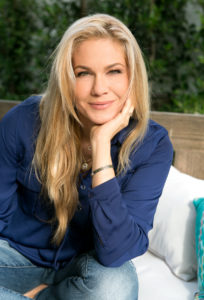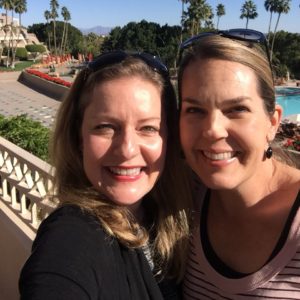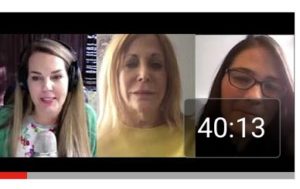Motherhood Radio/TV
Time Management for Busy Moms (Episode 89)
If there’s one thing all moms have too little of it’s time! Between kids’ schedules, home and family tasks and our own needs, there’s just never enough time to go around. That’s why today we’re talking with Myrna Haskell, writer and editor of Sanctuary Magazine (www.santuary-magazine.com), all about the tools of time management. How can you prioritize? What will help your kids manage time better? And how can you face your work/home life with more peace and calm? Tune in to find out. Then, check out Sanctuary Magazine’s May issue–devoted to moms, in honor of Mother’s Day, and featuring an interview with yours truly! (http://www.sanctuary-magazine.com/may-17-christina-hibbert.html)
When the Bough Breaks: The Reality of Postpartum Depression & What You Can Do (Episode 88)
One in five women will experience postpartum depression after the baby is born, and many others will deal with anxiety, OCD, PTSD, or even psychosis. Together, these disorders, named “Perinatal Mood & Anxiety Disorders,” are the most common complication associated with childbirth. We’re taking a deeper look at the reality of postpartum depression with my friend, Lindsay Gerszt, PPD survivor and producer of the powerful new documentary, “When the Bough Breaks,” narrated by Brooke Shields. Lindsay shares her heart-wrenching experience with postpartum depression and anxiety in the film and here with us, to raise awareness and promote support and help for all mothers in pregnancy and postpartum. What is postpartum depression? How can you tell if you’re experiencing it? Where can you turn for help? How can your relationships survive? These are just a few questions answered in today’s episode, along with the inspiring message from Lindsay’s life and film–that you truly are not alone, that with help, you will be well, and that beyond postpartum depression life goes on and can even flourish, with gifts of greater understanding, service, love, and personal growth. For more on Postpartum Depression Treatment, click here, and read my post, “The Benefits of Postpartum Depression.” Watch the YouTube video of this episode here.
Birth Healing- What Every Mom Needs to Know (Episode 87)
What happens to your body after childbirth? If you’ve given birth you’ve no doubt experienced some alterations in how your body works (or doesn’t work), but you might be surprised at how dramatically the experience of pregnancy, labor and delivery can alter the body. From changes in the pelvic floor to the diaphragm, from the back and abdomen to the way we breathe, these changes can go unnoticed and untreated and lead to long-term physical and emotional symptoms that otherwise could be prevented. Today’s guest, Lynn Shulte-Leech (www.instituteforbirthhealing.com) women’s health physical therapist, birth healing expert and founder of The Birth Healing Institute, will open your eyes (as she did mine!) to the many changes our bodies undergo when we give birth. Lynn shares her incredible knowledge on what we can do to heal from such after-birth complications as vaginal prolapse, leakage, painful intercourse, or a “doming” belly. An important, eye-opening episode every mother who’s given birth must see! (*Due to the intimate nature of today’s topic, you may wish to ensure young children are not listening.) For more on Birth Healing, join the Birth Healing Summit, featuring Lynn, me, and several other birth and postpartum experts. Visit www.instituteforbirthhealing.com/summit-2017 to register or for more information. Watch the YouTube video of this episode here.
How to Speak Up, Ask For & Receive What You Need (Episode 86)
When it comes to speaking up, asking for, and receiving what we need, we moms aren’t doing so well. Too often, we feel guilty having “needs,” let alone asking for help or letting that help in. Yet identifying and asking for what we need–for help, for support, for love, for a break!–is crucial to not only our own health and wellness, but our children’s and family’s as well. In this important episode, I’m sharing two stories I’m certain will motivate you to reconsider how you feel about asking for and receiving help. I’m also sharing the tools for how to identify, clearly state, and actually let that help in, including my How to Get Your Needs Met: 4 Steps to Asking & Receiving. To learn more about the stories, women, and tools I discuss in this moving episode, visit Postpartum Psychosis + Mental Health Stigma=40 Years in Prison and PPD & Mental Health: Self-Care & Letting Help In–The 2 Most Important Things. Watch the YouTube video of this episode here.
Mastery of Motherhood! Best “Mom Advice” from Mental Health Providers + Join the M.O.M. tour! (Episode 85)

Join the M.O.M. tour! Invite me to speak to your group! Visit http://www.drchristinahibbert.com/mastery-of-motherhood-be-part-of-my-book-radio-tv-tour/ to learn more!
Today I’m unveiling “Mastery of Motherhood”–my newest venture–and I want YOU to be part of it! Listen in for details on how to join me, and I just might be coming to visit you! Then, listen as 5 mental health provider friends of mine share their best “mom advice.” I’m sharing two of my top bits of wisdom, too. All geared to help you master motherhood, this is only the beginning! Visit www.drchristinahibbert.com/mastery-of-…dio-tv-tour for more info or email support@drchristinahibbert.com to invite me to visit your group on the “M.O.M. tour!” W
The Power of Connection–Finding Your “Tribe” Online & IRL (in real life) (Episode 84)
Connection is powerful in motherhood. We need one another–to support, encourage, and be there when the going gets tough. We need to be able to talk about kids—the joys and the stresses—and to find and nurture relationships with those who understand and support us through our parenting journey. Nowadays, there are a variety of options for connecting with others, both online–through social media, blogs, forums, etc–and in real life (IRL). The beauty of online connections is we no longer need feel isolated. But when is it all too much? Can it become a problem to connect online? Does it prevent us from the real life connections that are so crucial to community in motherhood? And when is it best to say “no” to connecting with others? Today my fabulous friend and www.30Seconds.com founder/CEO, Elisa All Schmitz, is here to share her wisdom on the power of connection–both online and IRL–on broad vs. deep connections, how to find your “tribe,” when to say “no” to online or real life commitments, and when to say “yes” to the opportunities for connection that come our way. Then, check out Women & Friendship: The ABC’s of Making & Keeping Friends. Watch the YouTube video of this episode here.
The Road to Calm (Episode 83)
It’s easy for emotions to run high in motherhood. Kids are emotional. Parents are emotional. It can be a perfect storm. How can we calm our emotions, teach our kids to do the same, and bring more peace into our families and homes? My guests, Dr. Carolyn Daitch (www.anxiety-treatmentlcom) & Lissah Lorberbaum (www.therapy-healing-recovery.com), authors of “The Road to Calm Workbook” (books.wwnorton.com/books/The-Road-…-Calm-Workbook/) are here to teach us the tools for calming emotional flooding. They’re walking us through the STOP solution, sharing their favorite tools for calming anxiety and stress, and even doing a relaxing hypnotherapy exercise with us. Get your “calm” on in this stress-relieving episode of Motherhood! Then, check out “8 Keys to Stress Relief” for more ways to travel the ‘road to calm!’ Watch the YouTube video of this episode here.






